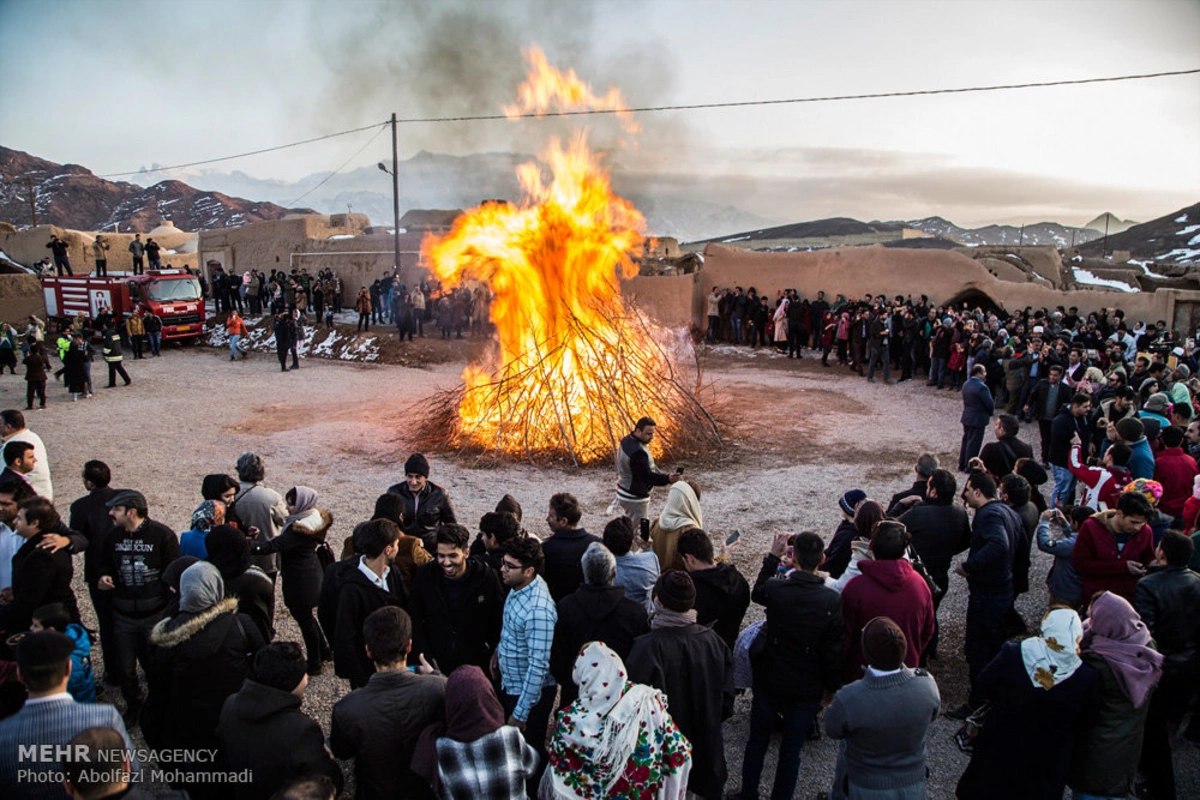
Today is Jashn-e Sadeh, an Iranian winter festival celebrated each year on the 10th of Bahman in the Iranian calendar and of Mehr in the Zoroastrian, which falls on 30 January.
Image: Abolfazl Mohammadi/MEHR
Looking forward to the warmer days of spring, the main feature of Sadeh is the lighting of a ceremonial fire, whether modest and set in an outdoor brazier or, in some cases, with a major bonfire. If that sounds a little reminiscent of the charshanbe celebrations that precede Nowruz/Novruz, that’s not entirely a coincidence. Indeed, though disputed by some, most sources consider that the name Sadeh is derived from sad, the Farsi word for "one hundred,” 30 January being 50 days plus 50 nights before 21 March, i.e. Nowruz—the start of the Iranian calendar year. Some Zoroastrians, however, consider that Sadeh was originally the culmination of the 40-day Yalda Festival, starting on the winter solstice (21 December) and culminating with the ascension of Rapithwin, the lord of radiance.
Myths repeated by many of the great Persian poets, including Ferdowsi and Omar Khayyam, give many variants of what the event actually commemorates, with a common version being that it remembers the discovery of fire by Shah Hushang, progenitor of the primordial Pishdadian Dynasty. Hushang was hunting in the mountains when he came across a giant snake. He tried to kill it by hurling a sharpened flint weapon, but while the snake escaped, he saw the sparks created as his stone hit another similar flint and created sparks.
Iranian Zoroastrian communities around the world still celebrate the Sadeh festival, but in Iran, it has transcended its Zoroastrian roots. Music and dancing are possible, along with the recitation of passages from the Shahnameh in which tales of Shah Hushang are retold. Great places to see the celebrations include Kerman (where Yalda and Sadeh can be conflated) and especially Yazd, where the bonfire can be

Share on social media
